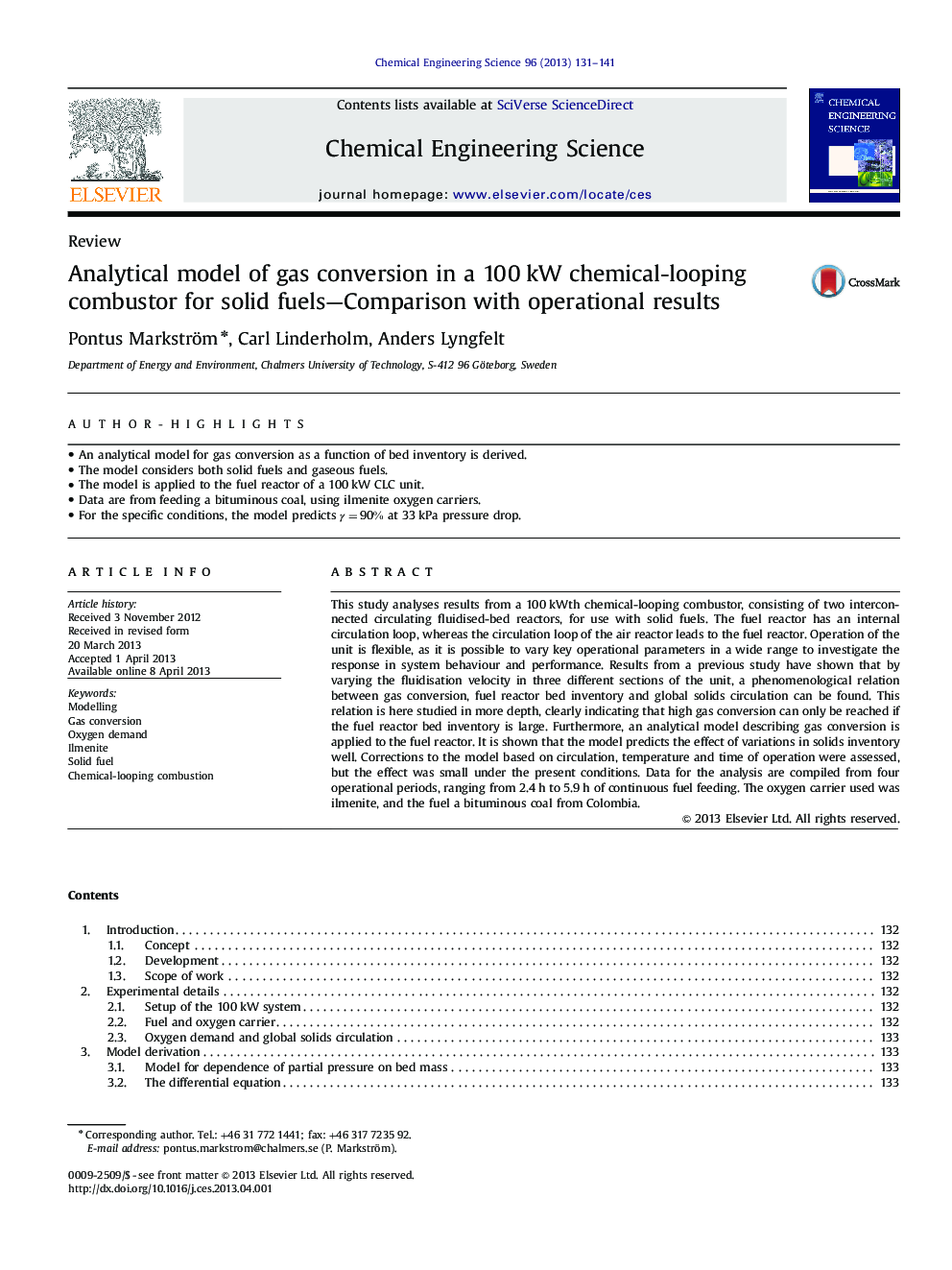| کد مقاله | کد نشریه | سال انتشار | مقاله انگلیسی | نسخه تمام متن |
|---|---|---|---|---|
| 155291 | 456889 | 2013 | 11 صفحه PDF | دانلود رایگان |

Author-Highlights
• An analytical model for gas conversion as a function of bed inventory is derived.
• The model considers both solid fuels and gaseous fuels.
• The model is applied to the fuel reactor of a 100 kW CLC unit.
• Data are from feeding a bituminous coal, using ilmenite oxygen carriers.
• For the specific conditions, the model predicts γ=90%γ=90% at 33 kPa pressure drop.
This study analyses results from a 100 kWth chemical-looping combustor, consisting of two interconnected circulating fluidised-bed reactors, for use with solid fuels. The fuel reactor has an internal circulation loop, whereas the circulation loop of the air reactor leads to the fuel reactor. Operation of the unit is flexible, as it is possible to vary key operational parameters in a wide range to investigate the response in system behaviour and performance. Results from a previous study have shown that by varying the fluidisation velocity in three different sections of the unit, a phenomenological relation between gas conversion, fuel reactor bed inventory and global solids circulation can be found. This relation is here studied in more depth, clearly indicating that high gas conversion can only be reached if the fuel reactor bed inventory is large. Furthermore, an analytical model describing gas conversion is applied to the fuel reactor. It is shown that the model predicts the effect of variations in solids inventory well. Corrections to the model based on circulation, temperature and time of operation were assessed, but the effect was small under the present conditions. Data for the analysis are compiled from four operational periods, ranging from 2.4 h to 5.9 h of continuous fuel feeding. The oxygen carrier used was ilmenite, and the fuel a bituminous coal from Colombia.
Journal: Chemical Engineering Science - Volume 96, 7 June 2013, Pages 131–141